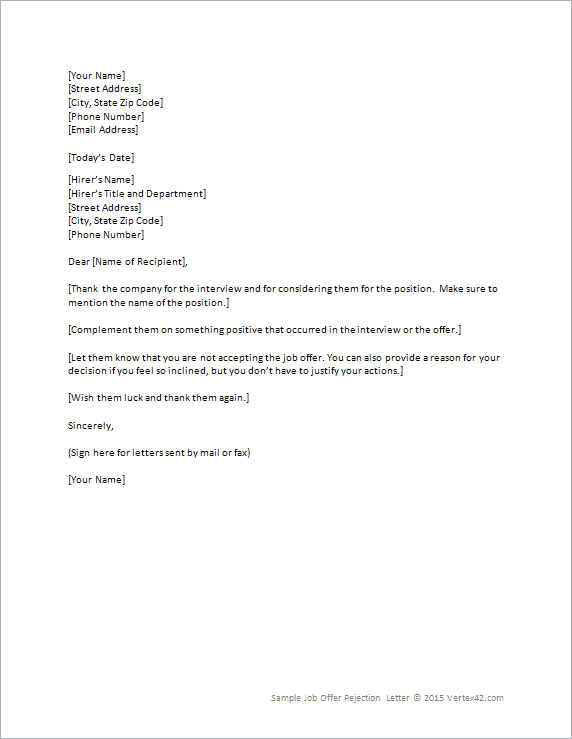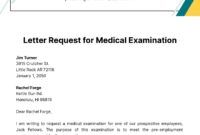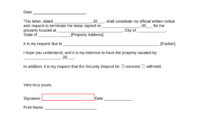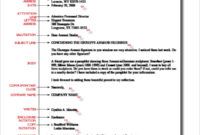Receiving a job offer is always an exciting milestone in your career journey. It’s a testament to your skills and experience, and it often feels like a validation of your hard work. However, there are times when an offer, despite its allure, simply isn’t the right fit for your career aspirations, personal circumstances, or perhaps you’ve received a better opportunity elsewhere. When this happens, knowing how to gracefully decline is just as important as knowing how to accept.
Navigating the process of turning down a job offer can feel a bit daunting. You want to be polite, professional, and respectful of the time and effort the hiring team invested in you, without burning any bridges. This is precisely where a well-crafted decline job offer letter template becomes invaluable, ensuring your message is clear, courteous, and leaves a positive lasting impression.
Maintaining Professional Relationships and Your Reputation
Even when you’re saying “no,” maintaining professionalism is paramount. The professional world can be surprisingly small, and you never know when your paths might cross again with the hiring manager, recruiter, or even future colleagues from the company you’re declining. A polite and well-worded refusal demonstrates your respect for their process and their time, reflecting positively on your character and work ethic. This isn’t just about common courtesy; it’s a strategic move to safeguard your professional reputation and network.
Think about the effort the company put into finding you. They reviewed countless resumes, conducted interviews, and perhaps even spent time negotiating. A professional decline acknowledges this investment, showing that you value their efforts even if the opportunity isn’t for you. This respect can open doors for future collaborations, referrals, or even opportunities within the same company down the line, should circumstances change. It’s about leaving things on a good note, ensuring that if you apply for another role there in the future, your previous interaction won’t be a mark against you.
Burning bridges by ghosting, providing a terse refusal, or being unprofessional can have long-lasting negative consequences. Recruiters and hiring managers often share feedback, and a reputation for unprofessionalism can precede you, making it harder to secure future roles. Conversely, a reputation for being considerate and professional, even when declining, can enhance your personal brand, setting you apart as someone with integrity and respect for others.

Ultimately, a thoughtful decline isn’t just about the company; it’s about you. It’s an extension of your professional identity and a commitment to conducting yourself with grace and respect in all career interactions. It ensures that every step you take, including those where you politely close a door, contributes positively to your overall career narrative.
Key Elements to Include in Your Letter
- Express sincere gratitude for the job offer and the time spent discussing the opportunity.
- Clearly and unequivocally state your decision to decline the offer.
- Provide a brief, general, and non-specific reason for your decision, if you feel comfortable doing so (e.g., “I’ve accepted a position that aligns more closely with my long-term career goals” or “After careful consideration, I’ve decided this role isn’t the right fit at this time”).
- Offer best wishes to the company in their continued search for a suitable candidate.
- Maintain a consistently polite, positive, and professional tone throughout the entire communication.
- Keep the letter concise and to the point, respecting the recipient’s time.
Tailoring Your Decline Job Offer Letter Template
While a decline job offer letter template provides an excellent starting point, customization is key. Every job offer and every reason for declining is unique, and your letter should reflect that. Think of the template as a skeleton, which you then flesh out with details that make your message personal and sincere. This personalization doesn’t mean revealing intimate details, but rather adding specific references to the role, the company, or the people you met during the interview process.
Consider the specifics of your situation. Are you declining because you’ve accepted a different offer? Is the salary or benefits package not what you expected? Or perhaps the role’s responsibilities or the company culture simply don’t align with your career path at this moment. You don’t need to elaborate extensively on your reasons, but a simple, diplomatic sentence can provide context without being overly detailed or negative. For example, instead of saying “Your salary was too low,” you might write, “I’ve chosen to pursue an opportunity that better aligns with my financial expectations.”
The medium of your decline also matters. In today’s fast-paced world, an email is generally the most acceptable and efficient way to decline a job offer. However, ensure your email is formatted like a formal letter, using proper salutations, grammar, and a professional closing. Avoid casual language or abbreviations. If you received the offer verbally, it’s a good practice to follow up with a polite email to formalize your decline.
Remember that your objective is to be remembered positively. Even though you are not joining the team, a well-crafted letter can leave a strong professional impression. It shows you’re thorough, considerate, and professional in all your communications, which are valuable traits that can serve you well throughout your career. A good decline job offer letter template helps you articulate this message with clarity and grace.
- Subject Line: Make it clear and professional, such as “Regarding Your Job Offer – [Your Name]” or “Job Offer Decline – [Your Name] – [Job Title]”.
- Salutation: Always address the hiring manager or recruiter by their proper name and title.
- Opening Paragraph: Begin by expressing genuine gratitude for the offer and the opportunity to interview. Mention the specific role and company to avoid ambiguity.
- The Decline: Clearly and politely state your decision to decline the job offer. Be direct but soft.
- Optional Reason: If you choose to provide a reason, keep it brief, positive, and focused on your personal career alignment rather than any perceived negatives about the company.
- Closing Thoughts: Offer best wishes for their continued success and finding a suitable candidate. You might also express hope for future connections.
- Professional Sign-off: Use a standard professional closing like “Sincerely,” “Best regards,” or “Respectfully,” followed by your full name.
Navigating your career path involves many decisions, and not all of them will be straightforward acceptances. Learning to respectfully decline an opportunity is a fundamental skill that contributes significantly to your overall professional maturity. It’s about more than just saying no; it’s about making a conscious choice to maintain positive relationships and uphold your personal brand.
Every interaction you have, even those where you part ways, shapes your reputation. By thoughtfully composing your decline, you demonstrate respect, integrity, and a clear understanding of professional etiquette, setting a high standard for how you conduct yourself in the workplace. This approach ensures that you always leave a positive impression, regardless of the outcome, fostering a foundation of goodwill that can benefit you for years to come.



